Report to Parliament on the Government of Canada's International Assistance 2018-2019
19 federal organizations delivered over $6.1 billion in international assistance, including $5.9 billion in official development assistance, from April 1, 2018 to March 31, 2019.

Messages from the Ministers
The Minister of International Development and the Minister of Foreign Affairs
The Honourable Karina Gould and the Honourable François-Philippe Champagne
As the Ministers of Foreign Affairs and of International Development, we are pleased to present the 2018-2019 Report to Parliament on the Government of Canada’s International Assistance. This is the most comprehensive overview of how Canada’s aid has been achieving international assistance results since the Official Development Assistance Accountability Act was adopted.


The Minister of Finance
The Honourable Bill Morneau
The Government of Canada is strengthening Canada’s place in the world through an approach to international assistance that reflects Canadians’ interests and values. This includes supporting inclusive and sustainable growth, as well as ensuring that Canada’s international assistance is focused on addressing the needs of the world’s poorest and most vulnerable people.
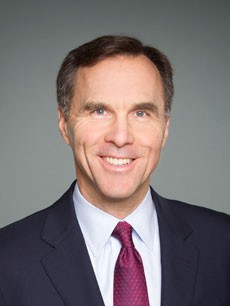
Overview of Canada’s federal international assistance in 2018-2019
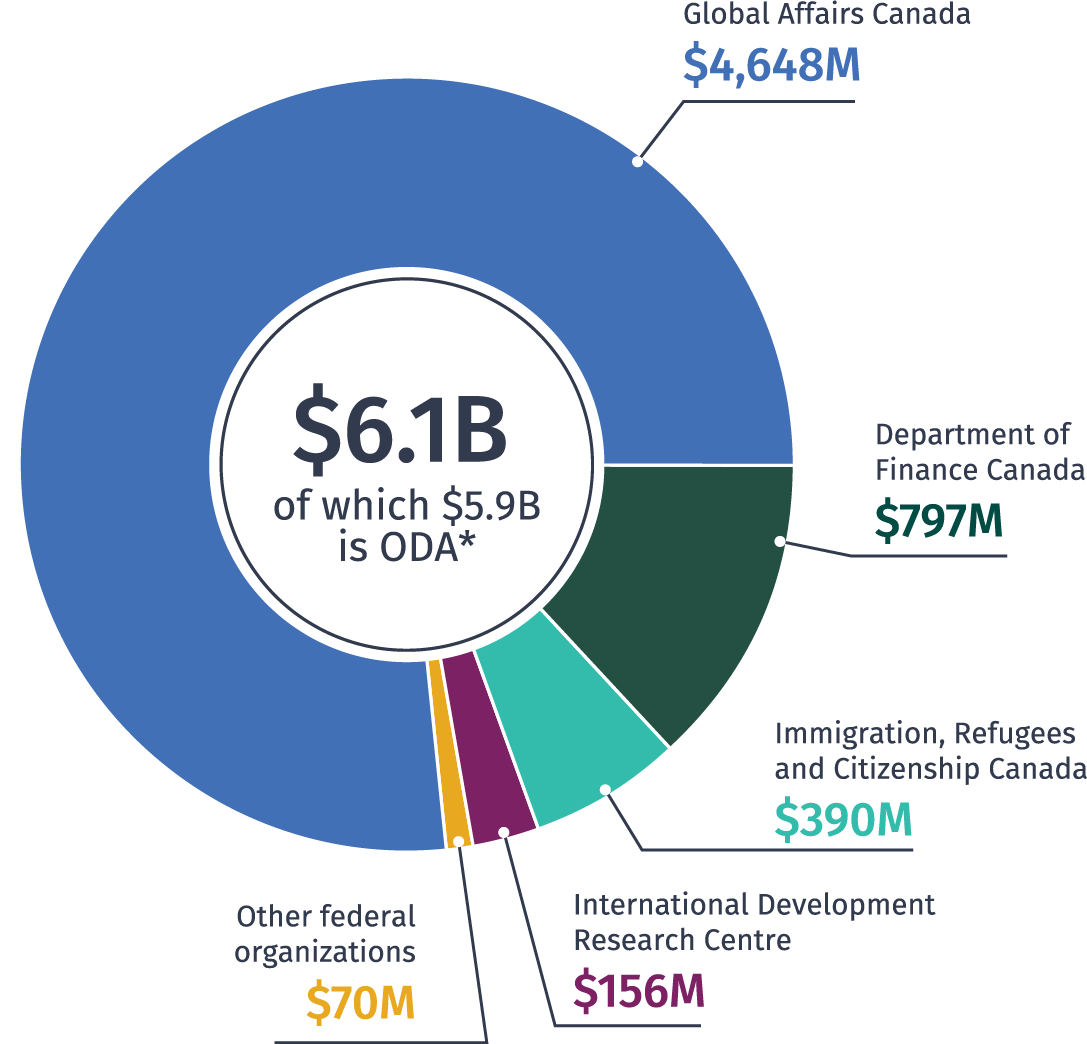
Text version
$6.1B, of which $5.9B is official development assistance (ODA)*:
| Department | Contribution |
|---|---|
| Global Affairs Canada | $4,648M |
| Department of Finance Canada | $797M |
| Immigration, Refugees and Citizenship Canada | $390M |
| International Development Research Centre | $156M |
| Other federal organizations | $70M |
* This report only covers international assistance and ODA disbursed by the Government of Canada. The Statistical Report on International Assistance also includes international assistance and ODA from Canadian provinces, territories and municipalities. Please refer to the Statistical Report for detailed definitions of international assistance and ODA.
The government of Canada’s international assistance funding increased by 7% between 2017-2018 and 2018-2019.
Illustrative results*
408,323 people were reached by projects that help prevent, respond to and end sexual and gender-based violence, including child, early and forced marriage and/or female genital mutilation.
3,804,639 entrepreneurs, farmers and smallholders received financial and/or business development services.
2,864,301 women and girls received access to sexual and reproductive health services, including modern methods of contraception.
176 megatons of greenhouse gas emissions reduced or avoided.**
355,268 teachers were trained according to national standards.
220,493 people graduated from technical or vocational education and training supported by Global Affairs Canada.
18,035,845 people were reached by projects that support women’s leadership in governance.
5,609 civil society organizations that advocate for human rights and/or inclusive governance were supported.
15% of humanitarian assistance projects included components addressing sexual and gender-based violence or sexual and reproductive health and rights.
165,818 peacekeepers were trained through deployments and projects to prevent and respond to sexual exploitation and abuse.
* Results include cumulative data from numerous Global Affairs Canada international assistance projects. Data includes results from the start of project implementation up until March 31, 2019. The implementation start dates vary from project to project. These results represent only a snapshot of Global Affairs Canada’s international assistance and do not reflect the entire breadth of its programming.
** This result reflects cumulative, expected impacts from pro-rated Global Affairs Canada and Environment and Climate Change Canada programming.
Success stories
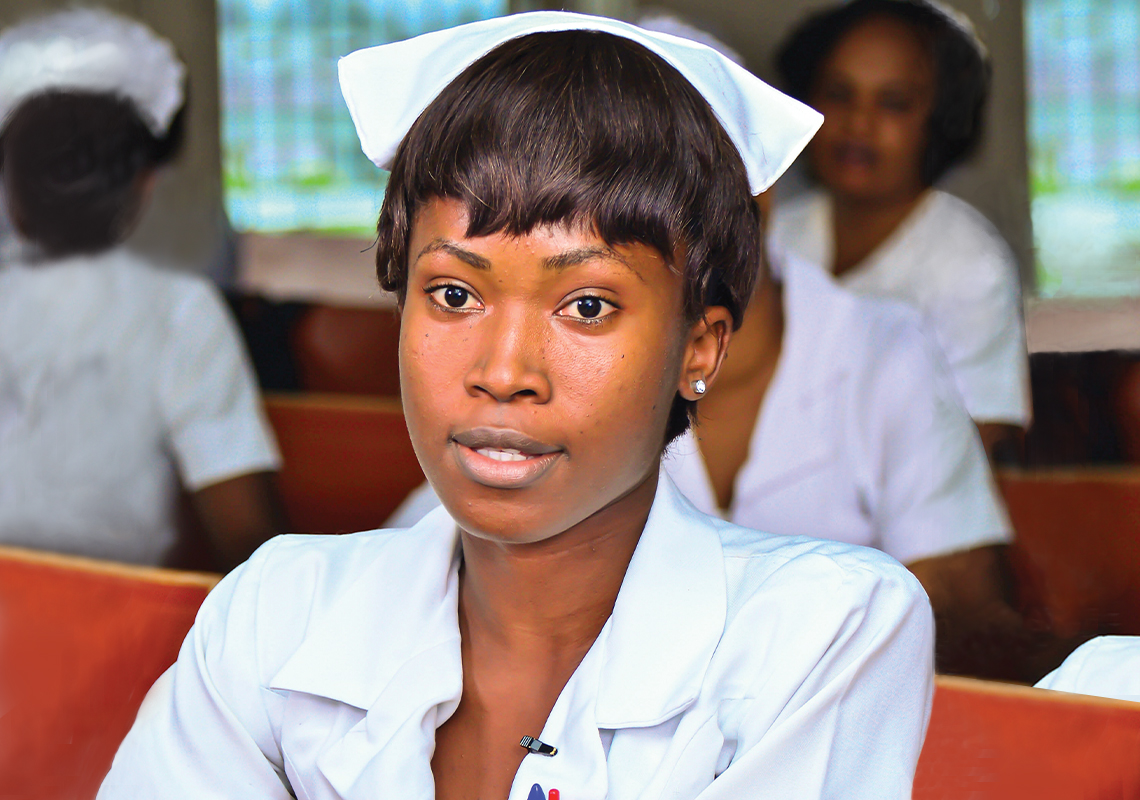
Training highly qualified and skilled health workers in Cross River State, Nigeria
Anita is one of hundreds of students at 11 health-training institutions. Thanks to Canada's support, much-needed frontline health workers will graduate.
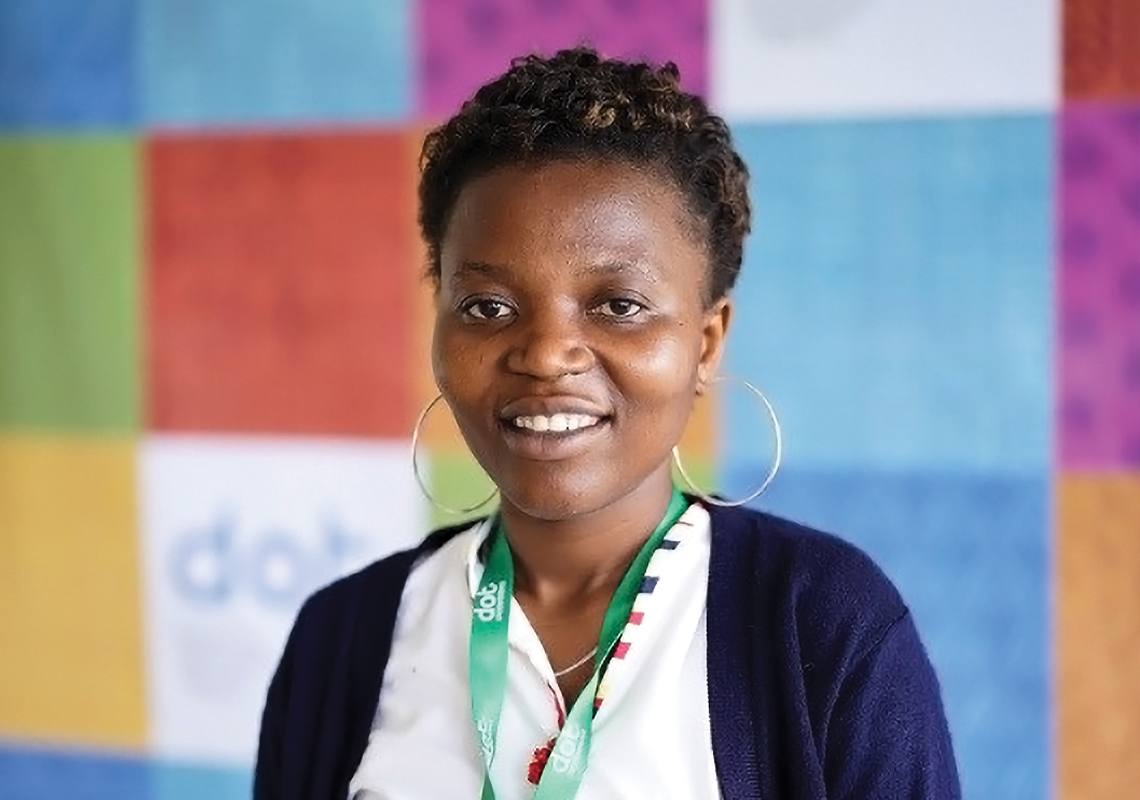
Youth-led financial solutions that work for Rwandans
Jeanne is a university graduate in Rwanda. She founded a social enterprise that develops software to meet the needs of the local community.
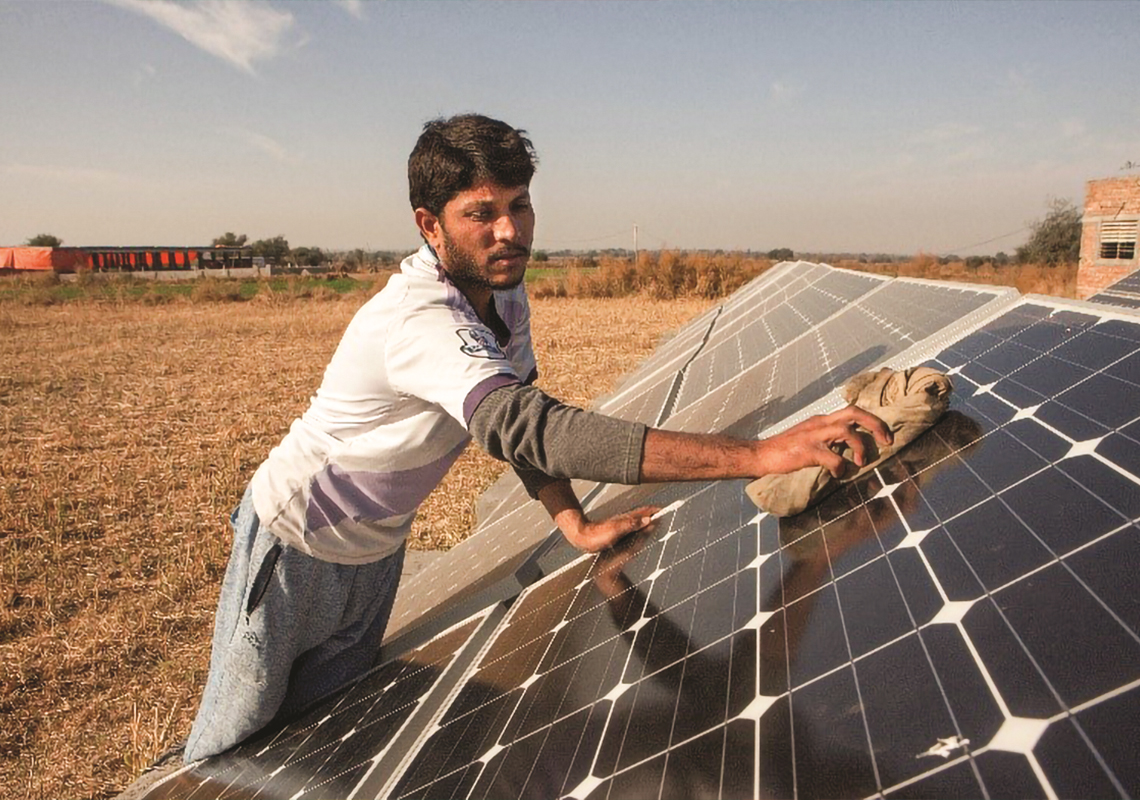
Building resilience to climate change
Asif cleans a solar-powered water pump system that helps farmers irrigate their fields. This is one of the adaptation measures piloted in northern Pakistan for climate-smart agriculture.
Key sections
- Overview of Canada's federal international assistance in 2018-2019
- Canada’s Feminist International Assistance Policy
- Action area: Gender equality and the empowerment of women and girls
- Action area: Human dignity
- Action area: Growth that works for everyone
- Action area: Environment and climate action
- Action area: Inclusive governance
- Action area: Peace and security
- Canada’s partners
- Innovation and effectiveness
- Volume 2: Engagement with international financial institutions